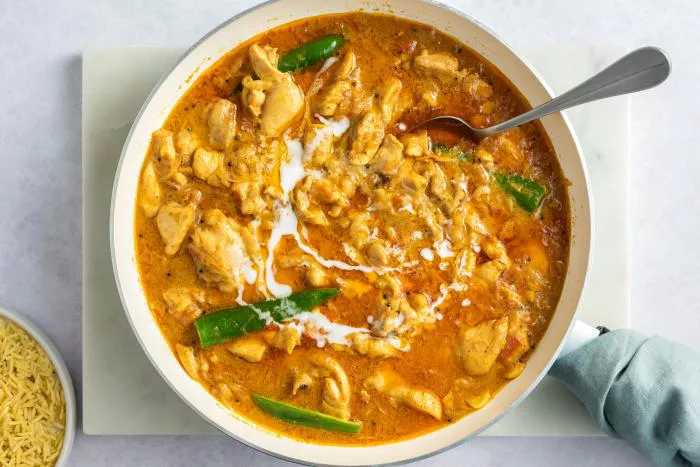Breastfeeding is a unique experience for every mother. Many factors affect a mother’s diet during this time, including culture, personal preferences, and nutritional needs. One question that often arises is whether it is safe to eat curry while breastfeeding. This article explores the effects of curry on breastfeeding and the health of both mother and baby.
Nutritional Benefits of Curry
Curry is a flavorful dish often made with a variety of spices. These spices can offer numerous health benefits. Common spices in curry include turmeric, cumin, coriander, and ginger.
Turmeric contains curcumin, which has anti-inflammatory properties. This can help improve the immune system. Cumin may aid digestion, and ginger is known to reduce nausea.
These benefits can be especially important for breastfeeding mothers. A healthy diet can support milk production and provide essential nutrients for both mother and baby.
Ingredients in Curry
Curry can be made with various ingredients, including vegetables, legumes, meats, and dairy.
Vegetables like spinach, carrots, and bell peppers add essential vitamins and minerals. Legumes, such as lentils and chickpeas, are a good source of protein and fiber.
If meat is included, it can provide additional protein and iron. Dairy products, such as yogurt or cream, may add calcium and probiotics.
When making curry, it is essential to choose ingredients that are fresh and wholesome. This ensures that the dish is not only tasty but also nutritious.
Spice Level and Breastfeeding
One concern some mothers have is the spice level of curry. Spicy foods may affect the taste of breast milk.
Research shows that flavors from foods can pass into breast milk. This can introduce babies to different tastes. Some babies may enjoy these flavors, while others may be sensitive to them.
If a mother eats spicy curry, it may not cause harm. However, some babies may react by becoming fussy or gassy. Each baby is different, and it may take some time to figure out their preferences.
Allergies and Sensitivities
Another concern when consuming curry while breastfeeding is allergies. Certain ingredients in curry, such as nuts or shellfish, can cause allergic reactions in some individuals.
If a mother has a family history of allergies, she should be cautious when eating curry. It is wise to avoid ingredients that could trigger an allergy.
If a mother notices any allergic symptoms in her baby, such as rashes or difficulty breathing, she should consult a doctor immediately.
Balanced Diet for Breastfeeding Mothers
A balanced diet is crucial for breastfeeding mothers. Eating a variety of foods helps ensure they get the necessary nutrients.
While curry can be a healthy option, it should not be the only meal in a mother’s diet. It is essential to include fruits, vegetables, whole grains, and proteins.
Hydration is also vital. Drinking enough water is important for maintaining milk supply.
Effects on Baby
Most mothers can eat curry without any problems while breastfeeding. However, some babies may react differently to the spices in curry.
If a mother eats curry regularly, she should monitor her baby for any signs of discomfort. Symptoms can include fussiness, gas, or changes in bowel movements.
If a baby seems uncomfortable after a mother eats curry, it may be wise to reduce the spice level or try milder options.
Cultural Perspectives on Curry and Breastfeeding
In many cultures, curry is a staple dish. It is often considered a comfort food. Many mothers enjoy sharing these cultural dishes with their children.
In some cultures, certain spices in curry are believed to have health benefits for breastfeeding mothers. For example, fenugreek is often used to enhance milk production.
Understanding the cultural significance of curry can help mothers feel more connected to their heritage while nourishing their babies.
Practical Tips for Eating Curry While Breastfeeding
Here are some practical tips for mothers who want to enjoy curry while breastfeeding:
Choose milder options: If unsure how the baby will react, start with milder curries. Gradually increase the spice level as the baby gets older.
Watch for reactions: Keep an eye on the baby after eating curry. If there are signs of discomfort, consider adjusting the diet.
Stay hydrated: Drink plenty of water while enjoying spicy foods. This can help with milk production.
Experiment with ingredients: Try different vegetables and legumes in curry. This can make meals more nutritious and enjoyable.
Consult with a doctor: If there are concerns about allergies or dietary restrictions, it is wise to speak with a healthcare professional.
See also: Is Mother’s Milk Tea Safe
Conclusion
Eating curry while breastfeeding can be a flavorful and nutritious choice for mothers.
The spices and ingredients in curry offer numerous health benefits.
While some babies may be sensitive to spicy foods, many will enjoy the new flavors introduced through breast milk.
By choosing healthy ingredients and being mindful of reactions, mothers can continue to enjoy curry during this special time.
Breastfeeding is a journey that varies for each mother and baby. It is essential to listen to one’s body and the baby’s needs.
Enjoying a diverse diet, including curry, can contribute to a positive breastfeeding experience.
Related topics:


